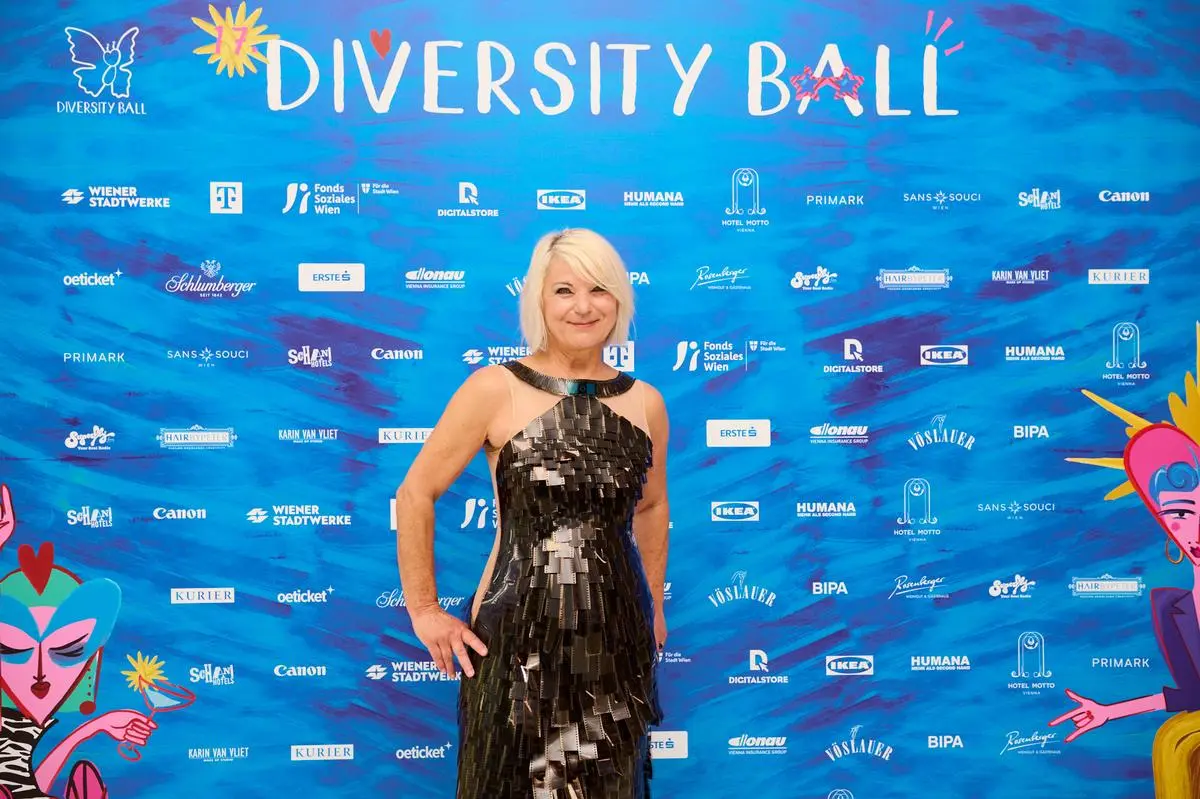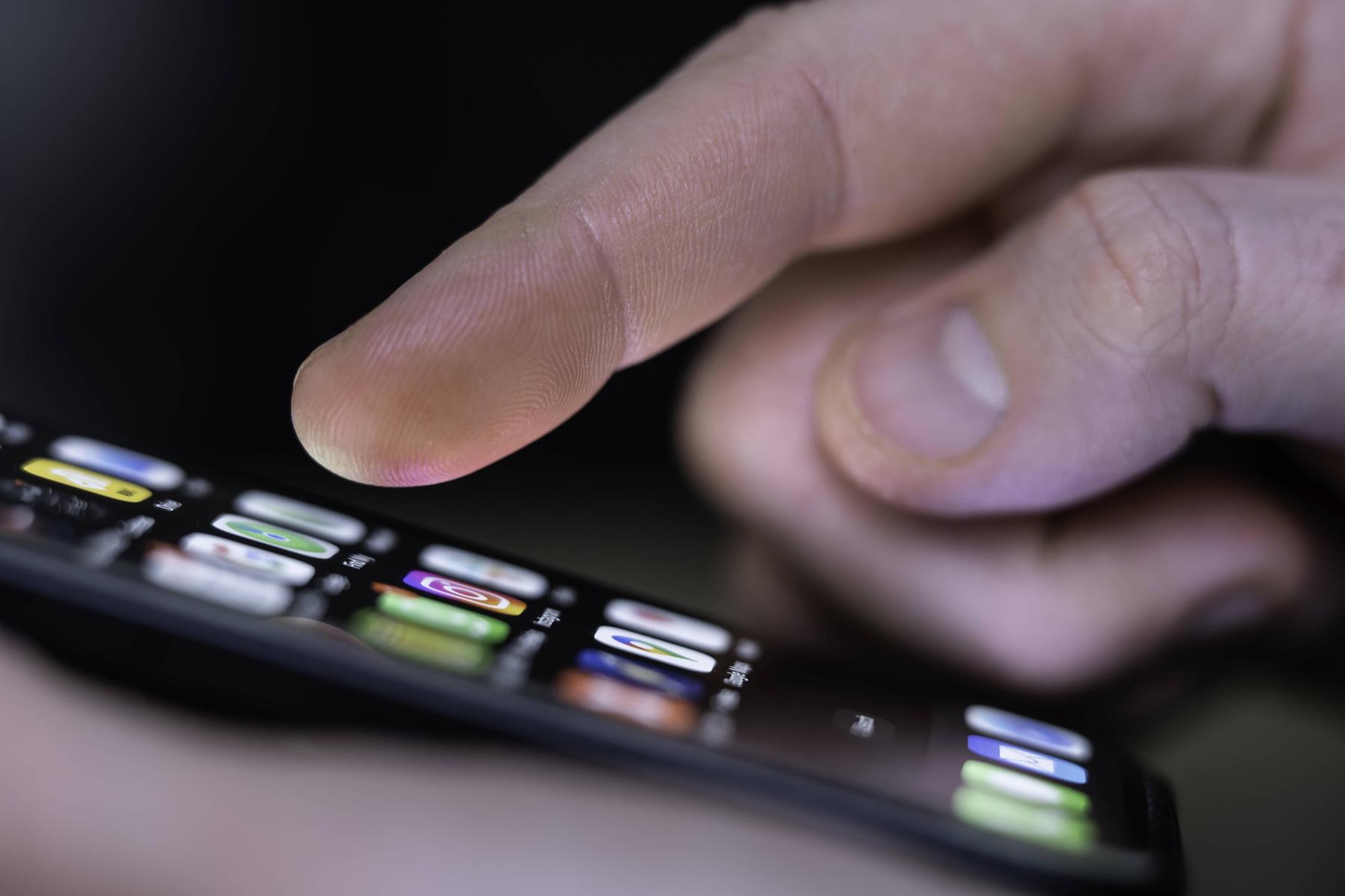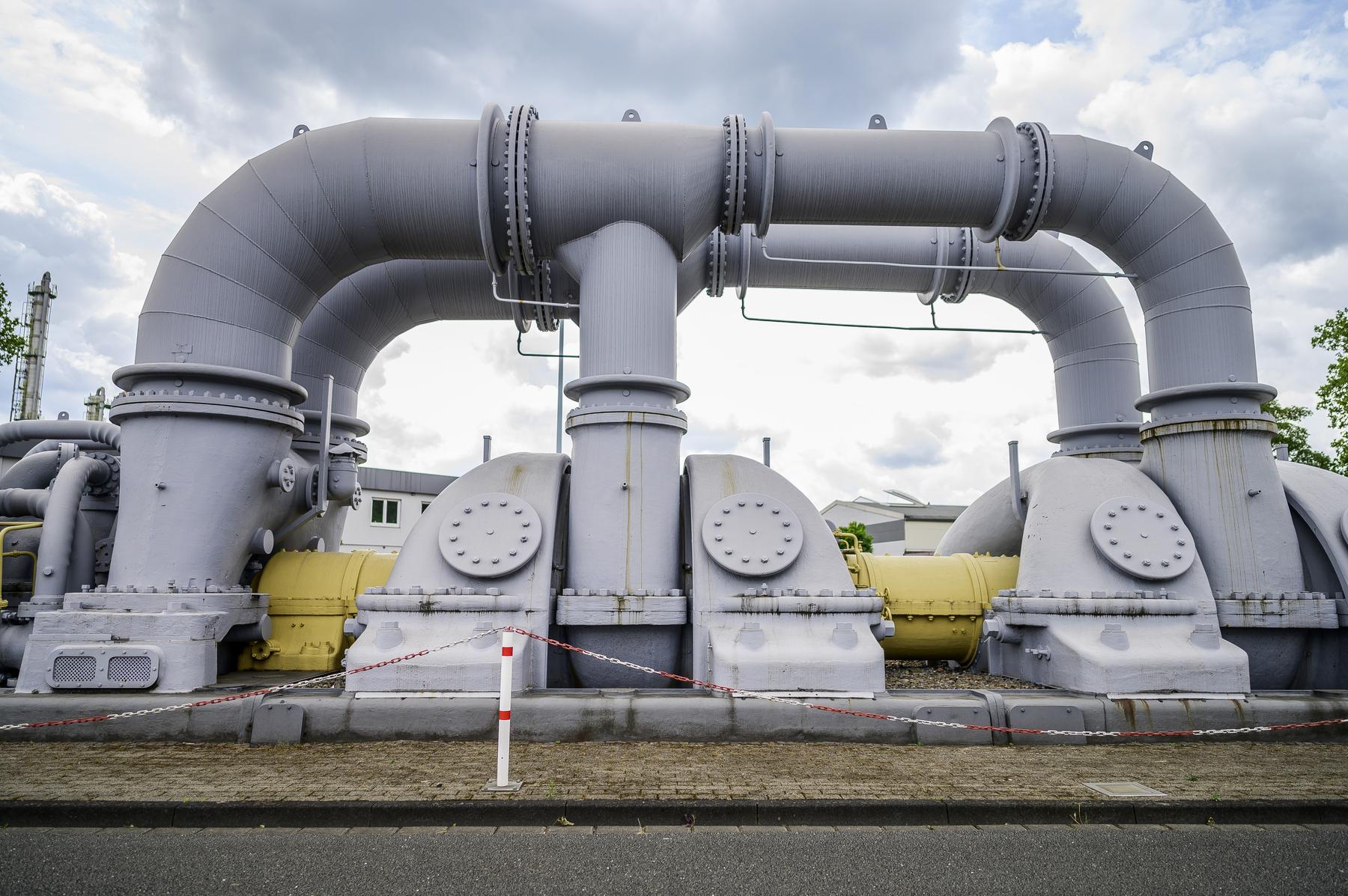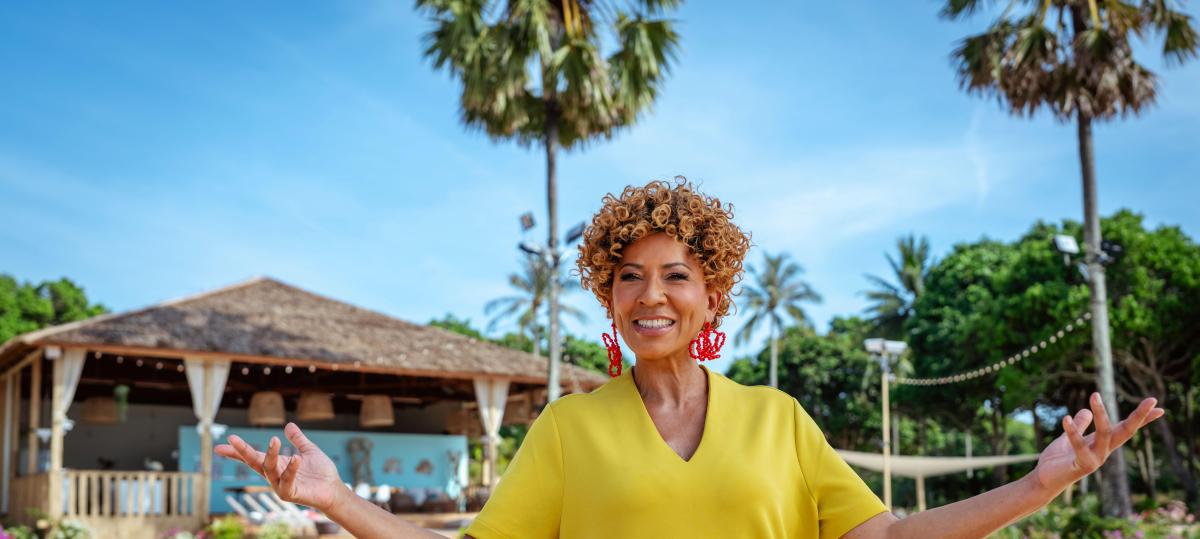« I was much better than I thought » – DiePresse.com
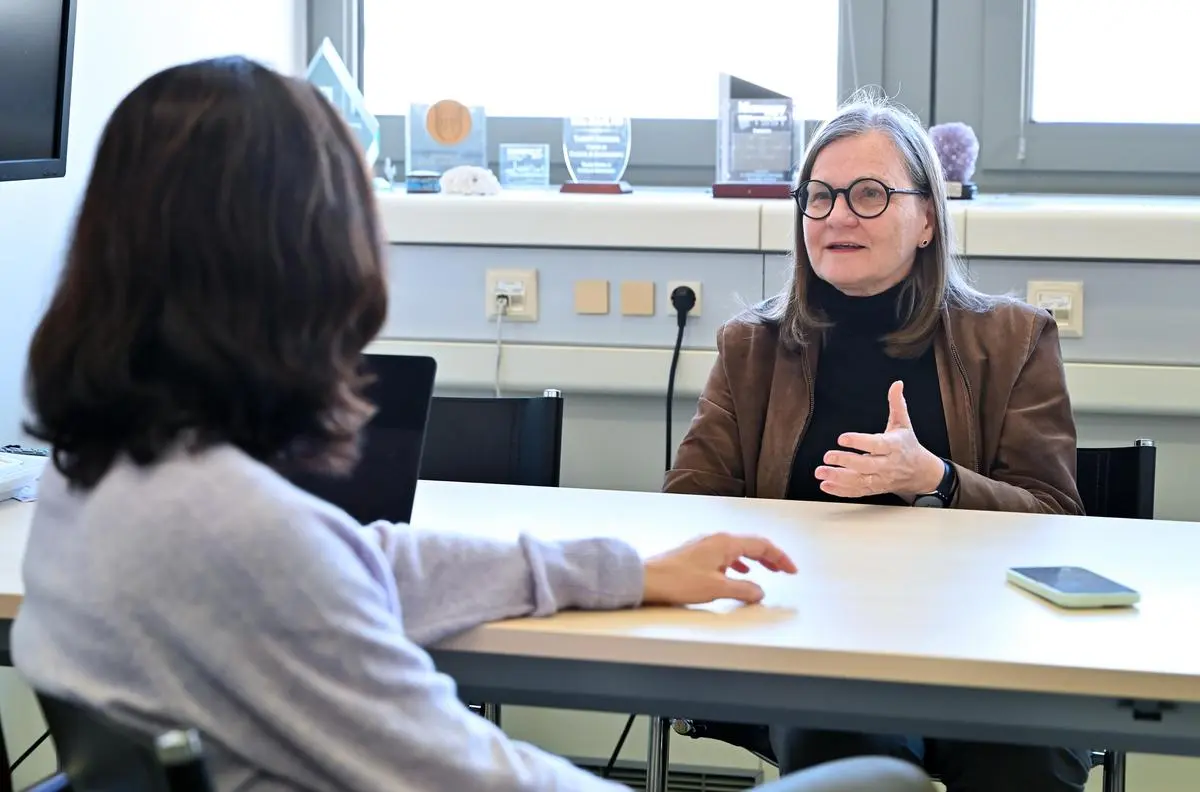
Ulrike Diebold is stunned, as the universities in the United States are « systematically broken ». The professor of surface physics has lived in the United States for 20 years and made a career there as a scientist.
Let’s talk about the USA and what is happening there. You have lived there for many years.
Ulrike Diebold: Yes, almost exactly 20 years. What is happening in the United States is terrible. Also with science, that’s madness! Trump pulls the Project 2025 leg hard. The Republican government systematically does the universities, among other things by radically deleting findings. Unis and professors are enemies. Let’s take the National Institute of Health (NIH): It is the best in the whole world. Practically all new drugs developed in the last decades have been developed by the NIH. Research there is an absolute top of the world. But the NIH is broken by simply turning the money tap to him. And this has a massive effect on the universities, whose research projects are largely financed by the NIH. The University of Alabama, for example,, the largest employer in this state, suddenly only gets very few funds.
Alabama is just an example of many.
The next thing is that all applications are rejected and all programs are rejected that have to do with diversity in any way: whether diversity of the marine mussels or Sea Floor’s diversity, everything is canceled. It’s absurd! The selection works with AI. Everything that the word « diversity » includes, whether it is now a black African or mussels, is canceled. In addition, the students who have to take loans in order to pay their tuition fees must no longer be deferred. Also this benefit – Zack away! And all the donations that the US universities get from foundations and which they rely will no longer be taxed at only 1.5 percent, but with 30 or 50 percent, you do not yet know more precisely. So universities are financially starved at all levels. It hurts so. And liberal nests are eliminated. This is absolute fascism.
Do you have the feeling that the US universities will be upgraded?
Barely. They are more likely to operate because they are so afraid. You will be subject. This is terrifying because universities were always places of resistance. In retrospect, I am very happy to return to Austria in 2010.
« />
Ulrike Diebold in conversation with Judith Hecht Clemens Fabry
They have certainly shaped the 20 years in the USA.
Naturally. At first personally – my two sons were born there – but just as professional. I went over after my doctorate. I made my whole scientific career there. I was going to go to Rutgers University as a postdoc to New Jersey as a postdoc (Note: The largest university in the US state of New Jersey) went back after two years. But then my friend, who became my husband, came after, and so it came that we stayed longer.
Did you feel comfortable in New Jersey?
Not at all at the beginning, New Jersey was ugly, the environment was catastrophic. Only suburbs, only cars, the park was a garbage dump, I had a cultural shock. But the work in the laboratory went great and the people were incredibly friendly. Over time, we found the right friends and felt very comfortable. After three years we asked ourselves the question: « What to do? » In Vienna I would have received a – lean – habilitation scholarship. That was an option. However, my boss in the USA urged me to apply for a professorship at Tulane University in New Orleans. I finally did that and got it immediately. And on top of that, half a million dollars for the devices that I needed for my experiments.
Did you expect that?
No, I was much better than I thought. I have not recognized my market value.
Because I was blue -eyed and didn’t think much about it. I already knew that my postdoc went very well, I really brought a lot further in research and also published a lot of good papers. But I didn’t see that I could be a professor at the age of 30. In the United States, university culture is different, so you become a young professor.
Did you include your husband in this decision?
Yes, of course. I wanted to fly back to New Jersey after the first interview in New Orleans, but there was a blizzard and I was sitting. I can still remember how I talked to my husband on the weekend of a coin system for hours and we tried to decide on our future. In the end I chose the professorship and my husband came with me.
Could he be happy about your success?
Yes, he is an incredibly supportive, fair person. My husband is also a great father, we really divided the care of our two sons. I had her in the morning, in the afternoon. We had no family in the USA that could have helped us. I always say to my students: « You have to let the men do the men for the sake of heaven. ‘Hold the baby like this. Take another Flascherl’, no father wants to hear that. » This worked very well for us, but also because there are much more and very good day care centers in the USA than in Austria. The attitude is also different: Even mothers who were at home sent their children to the daycare because they knew that it was so important for early childhood development. With us you would be the raven mother in such a case.
Was it clear to them that they don’t take a baby break?
Yes, that was clear! I couldn’t just stop researching a year with research, so I would have been away from the window. However, I didn’t have to give any lectures for a year. I was certainly not the mother who always baked muffins, but the children still got great and they have a great connection with both my husband and me.
“You have to complain in Austria, otherwise you will not be taken seriously. »
Ulrike Diebold,
Physicist and Univ. Prof at the Vienna University of Technology
It sounds like she and her family have spent a very good time in the United States.
We have that, the mindset there is simply different. That is: If you have an idea in Austria, everyone immediately thinks about why it couldn’t work, which speaks against it. In the United States, everyone assumes that it can succeed and you get started. Both variants have advantages: Because you think about the problems here beforehand, you may be able to solve them better in an emergency. On the other hand, we don’t even address many problems for all concerns. The second thing: there is so much technical know-how here, for example at the TU, people are absolutely great. But they often don’t know where to go, they lack the spirit. In the United States, people often have less depth, but curiosity and enthusiasm. You always want to try something new. It was perfect to come back here with this attitude.
Having visions is so important.
Yes, and you can learn from early in the USA. Already at school there is always talk to the children about the dreams they have, what they want to do once. « You can achieve everything », everyone there hears. When I think of my career counseling, it was a pure disaster! « Dear small, small », that was the basic tenor.
Having big goals still seems arrogant to many.
Unfortunately. In Austria you have to whine, otherwise you will not be taken seriously. If you ask someone in the United States how he is doing, he tells you: « I’m great. Unfortunately, the cancer came back, but everything else is fine. »
Well, that’s not entirely coherent either.
Of course not. There are many disadvantages there, the health system alone. But people take on more responsibility for their own life.
That means when she and her family came back, did you also experience a cultural shock?
Absolutely, that was not easy, especially for my older son. Everyone in the United States was happy, everyone here is unfriendly. The decision to go away was not easy for us either, but for me this was professionally my dream job.
At the Institute for Applied Physics at the Vienna University of Technology, getting a professorship for surface physics was your big dream?
Yes. The technical expertise and the infrastructure that exists here are incomparable. There is a workshop on the ground floor of the TU, there are precision mechanics that you cannot weigh up with gold. What defines us surface and experimental physicists is that we develop new things. And we can and do that together with our engineering students: inside. At the best US university, it would not be possible. Vienna is a Mecca of computer -aided materials science.
Ulrike Diebold,
Can you also ask them
What burns you on your tongue?
That the really great innovations always come from the basic science. Pioneering changes arise where people driven by curiosity to better understand the world. Why do we have the GPS system? Because Einstein wanted to research the nature of the light over 100 years ago.
Are you putting less pressure on always providing research results?
This is above all the inside of the inside. The only topic of what my husband and I had ever argued about: « Who can go to work and when? » I am still enthusiastic about working in the laboratory. It’s a passion, no pressure.
Do you like to shop?
No, I hate shopping, especially clothes. But I have a friend who does it with me.
Profile
Ulrike Diebold (*1961 in Kapfenberg) received his doctorate in technical physics at the Vienna University of Technology in 1990. 1990 to 1993: Postdoctoral at the Department of Physics at Rutgers University in New Jersey/USA. 1993 to 1999: Assistant Professor at the Department of Physics at Tulane University and habilitation in experimental physics at the Vienna University of Technology.
1999 to 2009: Associate Professor and then a professor at Tulane University.
Since 2010 she has been a professor of surface physics and deputy head of the Institute for Applied Physics at the Vienna University of Technology.
2013: Wittgenstein Prize-Most Deried Austria in the field of science. 2015: European Academy of Sciences with the Blaise Pascal Medal in Materials Science. Vice President of the Austrian Academy of Sciences (ÖAW) since 2022.

